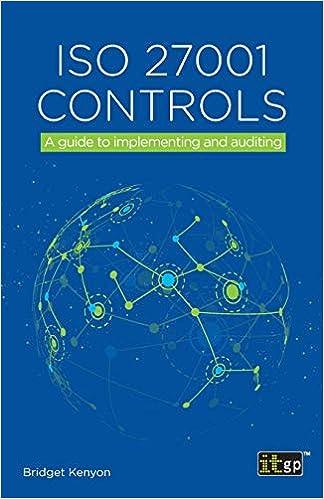Question
Following are six situations that involve the audit risk model as it is used for planning audit evidence requirements. Numbers are used only to help
Following are six situations that involve the audit risk model as it is used for planning audit evidence requirements. Numbers are used only to help you understand the relationships among factors in the risk model.
| Risk | Situations | |||||
| \ | 1 | 2 | 3 | 4 | 5 | 6 |
| Acceptable Audit Risk | 5% | 5% | 5% | 5% | 5% | 5% |
| Inherent Risk | 100% | 40% | 60% | 20% | 100% | 40% |
| Control Risk | 100% | 60% | 40% | 30% | 100% | 60% |
| Planned Detection Risk | ---- | ---- | ---- | ---- | ---- | ---- |
a. Explain what each of the four risks means.
b. Calculate planned detection risk for each situation
. c. Which situation requires the greatest amount of evidence and which requires the least?
d. Using your knowledge of the relationships among the foregoing factors, state the effect on planned detection risk (increase or decrease) of changing each of the following factors while the other two remain constant:
(1) An increase in acceptable audit risk
(2) An increase in control risk
(3) A decrease in inherent risk
(4) An increase in control risk and a decrease in inherent risk of the same amount
Step by Step Solution
There are 3 Steps involved in it
Step: 1

Get Instant Access to Expert-Tailored Solutions
See step-by-step solutions with expert insights and AI powered tools for academic success
Step: 2

Step: 3

Ace Your Homework with AI
Get the answers you need in no time with our AI-driven, step-by-step assistance
Get Started


